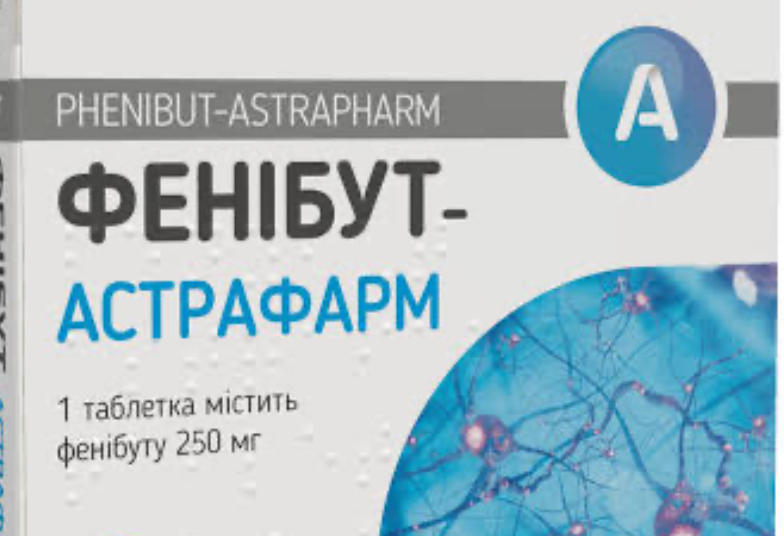Russian Roulette: The Gas Station Xanax
It’s not that I have anything against the former Soviet Union or its people…I just think some things are better left over there.



Walk into a gas station and you’ll see them: shiny blister packs labeled “Focus Now,” “Tranquil,” “Sleep Formula,” or “Stress Support.” They promise calm, clarity, and energy but what they don’t tell you: many of these “supplements” trace straight back to Soviet-era pharmaceuticals never approved for use in the United States.
The Moscow Connection
In Russia, scientists spent decades building chemical workarounds for anxiety, fatigue, and performance — drugs for soldiers, cosmonauts, and surgeons who couldn’t afford to panic or sleep. That’s where compounds like phenibut, bemitil, emoxypine, selank, and semax were born.
Each one was designed to alter brain chemistry, not “support” it. All five now appear online or in corner stores, rebranded as “nootropics” or “natural stress relief.”
- Phenibut: a GABA-mimicking tranquilizer used in Russia for anxiety and insomnia. It causes dependence and withdrawal symptoms that mimic benzodiazepine detox.
- Bemitil (Metaprot): a Soviet fatigue drug originally issued to pilots and athletes; banned by the World Anti-Doping Agency.
- Emoxypine (Mexidol): an antioxidant analog of phenibut, still prescription-only in Russia.
- Selank & Semax: neuropeptide sprays claiming to “boost memory” and “reduce stress.” Sold here as “nasal nootropics.”
In the U.S., none of them are approved drugs and none meet the definition of a legal dietary ingredient.
From Space Labs to Strip Malls
Here’s the trick: these compounds slip in under the label “dietary supplement” even though they are synthetic pharmaceuticals. Importers rename them, tweak the branding, and sell them online or through vape shops as “mood support” or “relaxation” aids.
There’s no FDA pre-approval, no human-safety data, and no age limits — because they hide under the same shelf label as multivitamins.
This is the same playbook used by the kratom industry: rebrand a foreign drug as a “herbal alternative” and let U.S. supplement law do the rest.
The High That Pretends It Isn’t
Users call phenibut “Gas Station Xanax.” On social media it’s sold as a “legal zen” until the comedown hits. Dependence forms fast, withdrawals are brutal, and the ER can’t reverse it with standard treatments.
“It’s like your brain stops working unless you feed it the powder.” — Reddit user
The irony? In Russia, it’s prescription-only and often reserved for short-term hospital use. In the U.S., it’s on the counter next to chewing gum.
Why It Matters
These are pharmaceuticals with unregulated doses, sold as stress relief to teens and shift workers who think they’re buying a vitamin. They interact dangerously with alcohol, opioids, antidepressants, and even caffeine.
What Lawmakers Can Do
- Ban phenibut, bemitil, emoxypine, selank, and semax at the state level. These are synthetic drugs, not nutrients.
- Close the “import as supplement” loophole. Require proof of U.S. use before 1994 or FDA pre-approval for any foreign pharmaceutical ingredient.
- Restrict online “nootropic” marketing. Treat brain-drug ads the same way we treat unlicensed prescription sales.
- Educate parents. If a product calls itself “Gas Station Xanax,” it’s probably closer to a pharmacy drug than a vitamin.
Sources & Documentation
- Food and Drug Administration. Phenibut in Dietary Supplements. Constituent Update, 2019.
- Cohen PA et al. Unapproved Pharmaceuticals Marketed as Dietary Supplements. JAMA Netw Open. 2021; 4(7): e2113203.
- World Anti-Doping Agency (WADA). Bemitil (Metaprot) Prohibited List. 2024.
- European Medicines Agency. Emoxypine and Related Compounds. 2023.
- Shulgina GI et al. Phenibut: A Brief History of Clinical Use in the USSR and Beyond. Neurosci Behav Physiol. 2019.